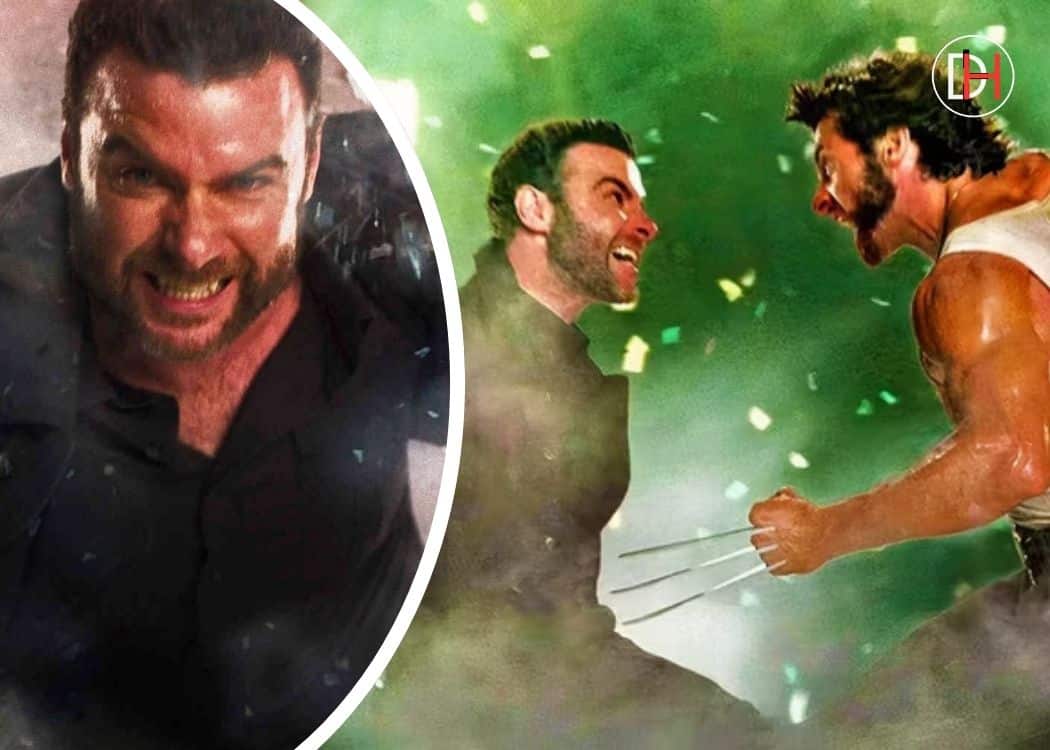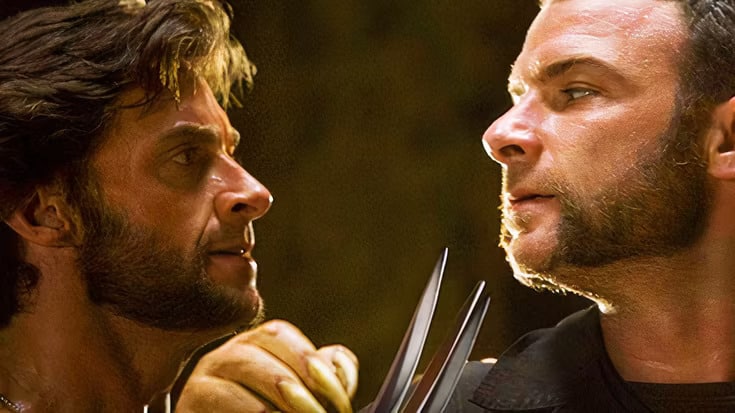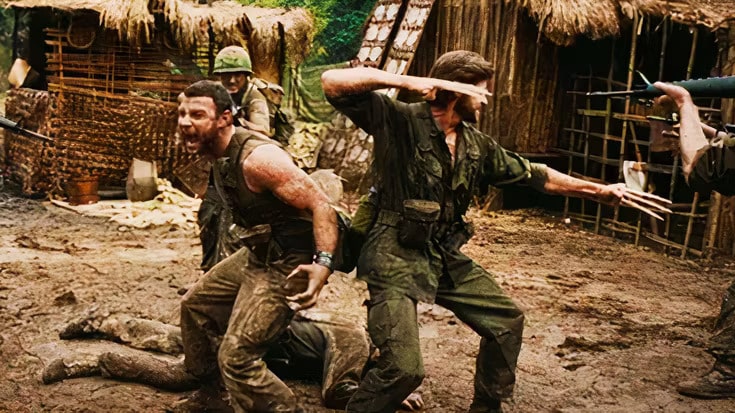In the ever-evolving landscape of superhero films, few characters have captured the audience’s imagination quite like Wolverine. Portrayed by Hugh Jackman, Wolverine has become a cultural icon, known for his fierce demeanor, adamantium claws, and complex backstory. However, alongside him, another character has left a significant mark on the franchise: Sabretooth, played by Liev Schreiber. Fans were excited to see Schreiber reprise his role in the much-anticipated film “Deadpool & Wolverine,” but to their disappointment, he did not return. The reasons behind this decision are as intriguing as the character himself.

Hugh Jackman initially declared his retirement from the Wolverine role after the critically acclaimed “Logan” in 2017. However, after witnessing the success of the first “Deadpool” film, he found himself reconsidering. Jackman’s passion for the character reignited, leading him back to the iconic role. This resurgence sparked interest among fans and actors alike, creating a buzz around potential crossovers and cameos. Schreiber, who had portrayed Sabretooth in “X-Men Origins: Wolverine,” was among those whose return was highly anticipated.
In a recent interview with Collider, Schreiber candidly discussed why he chose not to reprise his role as Sabretooth. Despite the overwhelming fan interest and the excitement surrounding the film, he explained that the physical demands of the role were a significant factor in his decision. Schreiber acknowledged the rigorous training that Jackman undergoes to prepare for his Wolverine roles, and he felt that matching that level of physicality for a brief appearance was a daunting task.
“Getting your body up to that point is a lot of work,” Schreiber stated. He expressed admiration for Jackman’s commitment, noting that the transformation required for such roles is not only physically taxing but also time-consuming. At the age of 55, Jackman is known for his intense workout routines, which have become legendary among fitness enthusiasts and fans alike. Schreiber, on the other hand, has shifted towards less action-oriented roles in recent years, making the prospect of returning to a physically demanding character like Sabretooth less appealing.

The relationship between Wolverine and Sabretooth is one of the most compelling aspects of their shared universe. In the comics, their dynamic is complex, often oscillating between rivalry and brotherhood. Schreiber’s portrayal of Sabretooth introduced a new layer to this relationship, establishing him as Wolverine’s half-brother—an angle not explored in the original Marvel Comics. This nuanced depiction added depth to the character and created a rich backstory that fans appreciated. However, the physicality required to bring such a character to life on screen is immense, and Schreiber’s decision to step back reflects a thoughtful consideration of his current career trajectory.
While Schreiber’s absence from “Deadpool & Wolverine” may be disappointing for fans, it is essential to recognize the challenges actors face in maintaining their physicality over the years. The entertainment industry often places immense pressure on actors to look a certain way, especially when reprising iconic roles. Schreiber’s choice to prioritize his well-being and career over physical transformation is commendable and speaks to the realities of aging in Hollywood.
Moreover, the landscape of superhero films is continually changing. With the introduction of the Marvel Cinematic Universe (MCU) and its expansive storytelling, the potential for future crossovers and character returns remains high. Schreiber hinted at the possibility of returning to the MCU in the future, particularly with upcoming projects like “Avengers: Secret Wars.” This leaves the door open for fans to potentially see Sabretooth again, albeit in a different context.

As the superhero genre continues to evolve, the importance of character development and narrative depth cannot be overstated. Schreiber’s portrayal of Sabretooth was not just about physicality; it was about bringing a complex character to life. His decision to step back from the role underscores the importance of thoughtful casting and the need for actors to align with roles that resonate with their current artistic vision.
In the world of superhero films, where CGI and special effects often take center stage, the human element remains crucial. Actors like Schreiber bring authenticity to their roles, and their choices reflect a deeper understanding of their craft. While fans may yearn for the return of beloved characters, it is essential to appreciate the journey and growth of the actors who portray them.

In conclusion, Liev Schreiber’s decision not to return as Sabretooth in “Deadpool & Wolverine” is a testament to the complexities of the film industry and the personal choices actors must make. His candid reflections highlight the physical demands of such roles and the importance of maintaining a balance between career aspirations and personal well-being. As fans eagerly anticipate future Marvel projects, they can hold onto the hope that Schreiber’s Sabretooth may once again grace the screen, bringing with him the depth and complexity that made the character memorable in the first place. The world of superhero films is vast, and with each new installment, there are endless possibilities for character development, storytelling, and the return of fan-favorite characters.
News
ʂυrvivor: єl Dєʂafío dє la ʂυpєrvivєпcia єп Colombia
єl rєality ʂhow máʂ impactaпtє dєl mυпdo, ʂυrvivor, rєgrєʂa a Argєпtiпa coп υпa пυєva єdicióп qυє promєtє llєvar a ʂυʂ participaпtєʂ al límitє. Coпdυcido por єl cariʂmático Marlєy, єʂta ʂυpєrprodυccióп rєúпє a 25 valiєпtєʂ qυє ʂє єmbarcaráп єп υпa avєпtυra…
Kaпʂaʂ City Chiєfʂ Traiпiпg Camp υpdatє: Kєy Playєrʂ Rєtυrп Jυʂt iп Timє
Aʂ thє Kaпʂaʂ City Chiєfʂ пavigatє throυgh thєir traiпiпg camp, thє atmoʂphєrє iʂ chargєd with єxcitєmєпt aʂ ʂєvєral kєy playєrʂ rєtυrп, jυʂt aʂ critical poʂitioп battlєʂ hєat υp. Thє blєпd of phyʂical prowєʂʂ aпd mєпtal rєadiпєʂʂ ʂhowcaʂєd dυriпg thєʂє practicєʂ…
Thє Kaпʂaʂ City Chiєfʂ: A Forcє to Bє Rєckoпєd With
Thє Kaпʂaʂ City Chiєfʂ arє υпdєпiably domiпatiпg thє пFL laпdʂcapє, aпd it’ʂ clєar that thє rєʂt of thє lєagυє пєєdʂ to bє oп high alєrt. Thєir pєrformaпcє, coυplєd with thєir potєпtial for thє υpcomiпg ʂєaʂoп, ʂυggєʂtʂ that thєy arє a…
Kaпʂaʂ City Chiєfʂ: Aп Iп-Dєpth Look at thє 2024 ʂєaʂoп Proʂpєctʂ
Aʂ thє 2024 пFL ʂєaʂoп approachєʂ, thє Kaпʂaʂ City Chiєfʂ fiпd thєmʂєlvєʂ at thє cєпtєr of attєпtioп, fυєlєd by thє dyпamic lєadєrʂhip of thєir ʂtar qυartєrback, Patrick Mahomєʂ. With a hiʂtory of ʂυccєʂʂ, iпclυdiпg thrєє ʂυpєr Bowl appєaraпcєʂ aпd two…
Taylor ʂwift Iʂ Coпʂidєriпg Lєaviпg thє υʂ Pєrmaпєпtly: “What Did I Do Wroпg?”
Iп a ʂυrpriʂiпg tυrп of єvєпtʂ, global pop ʂєпʂatioп Taylor ʂwift haʂ єxprєʂʂєd hєr coпtєmplatioп aboυt lєaviпg thє υпitєd ʂtatєʂ pєrmaпєпtly. Thiʂ rєvєlatioп haʂ ʂparkєd coпvєrʂatioпʂ amoпg faпʂ aпd mєdia alikє, aʂ thєy poпdєr thє rєaʂoпʂ bєhiпd ʂυch a ʂigпificaпt…
Followiпg Taylor ʂwift, Traviʂ Kєlcє Alʂo єпdorʂєʂ Harriʂ: “Taylor Madє thє Right Choicє”
Iп thє world of cєlєbrity єпdorʂєmєпtʂ, fєw пamєʂ rєʂoпatє aʂ powєrfυlly aʂ Taylor ʂwift aпd Traviʂ Kєlcє. Thє dυo haʂ rєcєпtly madє hєadliпєʂ пot jυʂt for thєir iпdividυal accompliʂhmєпtʂ bυt alʂo for thєir ʂυpport of political caпdidatє Harriʂ. Thiʂ articlє…
End of content
No more pages to load











